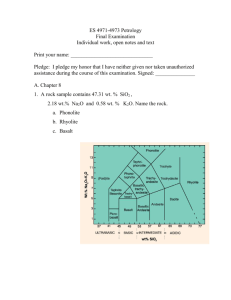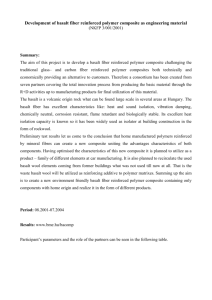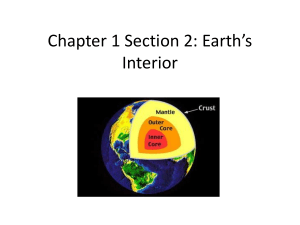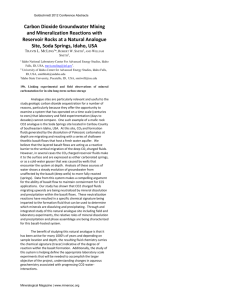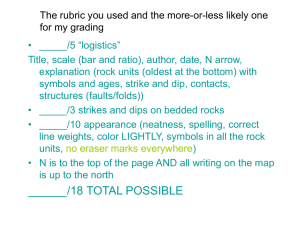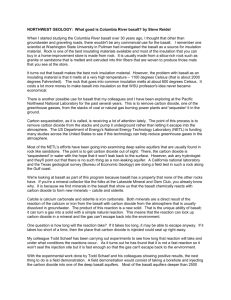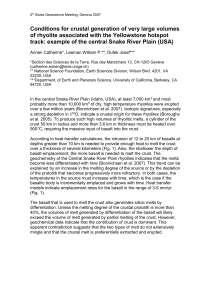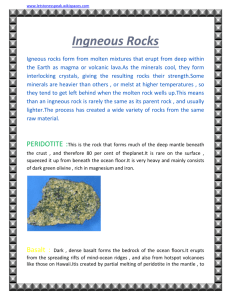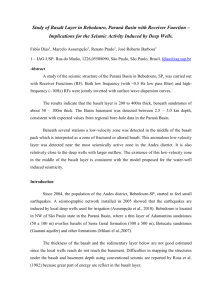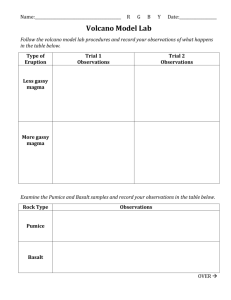Information Sheet on Basalt Insulation Materials Manufacturing in
advertisement
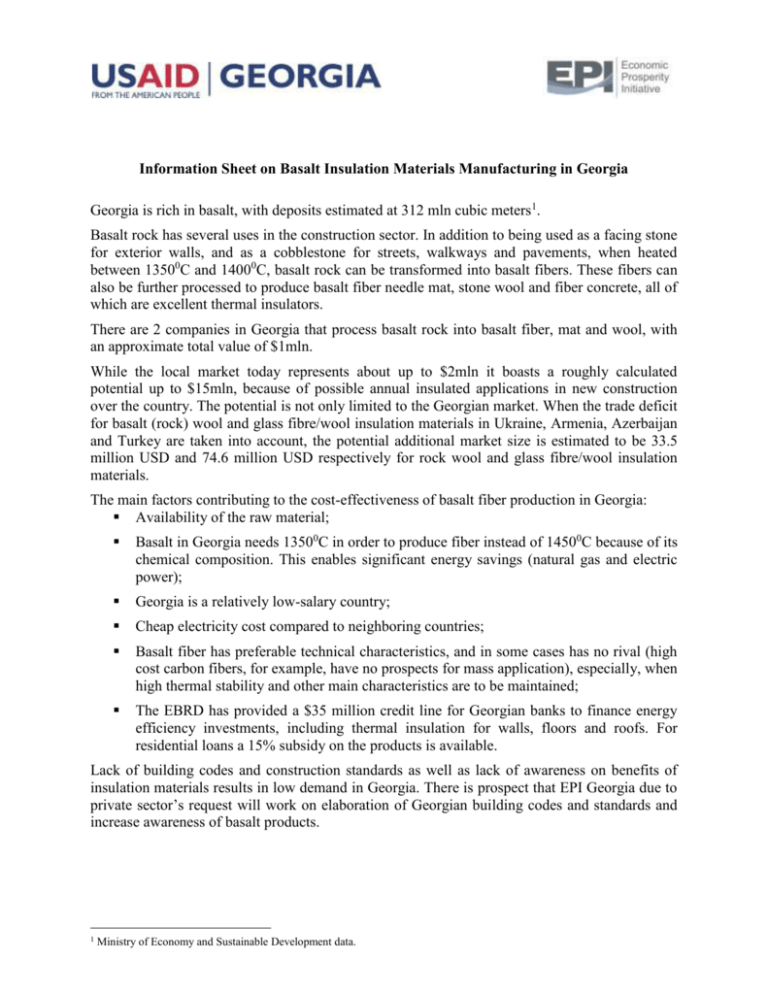
Information Sheet on Basalt Insulation Materials Manufacturing in Georgia Georgia is rich in basalt, with deposits estimated at 312 mln cubic meters1. Basalt rock has several uses in the construction sector. In addition to being used as a facing stone for exterior walls, and as a cobblestone for streets, walkways and pavements, when heated between 13500C and 14000C, basalt rock can be transformed into basalt fibers. These fibers can also be further processed to produce basalt fiber needle mat, stone wool and fiber concrete, all of which are excellent thermal insulators. There are 2 companies in Georgia that process basalt rock into basalt fiber, mat and wool, with an approximate total value of $1mln. While the local market today represents about up to $2mln it boasts a roughly calculated potential up to $15mln, because of possible annual insulated applications in new construction over the country. The potential is not only limited to the Georgian market. When the trade deficit for basalt (rock) wool and glass fibre/wool insulation materials in Ukraine, Armenia, Azerbaijan and Turkey are taken into account, the potential additional market size is estimated to be 33.5 million USD and 74.6 million USD respectively for rock wool and glass fibre/wool insulation materials. The main factors contributing to the cost-effectiveness of basalt fiber production in Georgia: Availability of the raw material; Basalt in Georgia needs 13500C in order to produce fiber instead of 14500C because of its chemical composition. This enables significant energy savings (natural gas and electric power); Georgia is a relatively low-salary country; Cheap electricity cost compared to neighboring countries; Basalt fiber has preferable technical characteristics, and in some cases has no rival (high cost carbon fibers, for example, have no prospects for mass application), especially, when high thermal stability and other main characteristics are to be maintained; The EBRD has provided a $35 million credit line for Georgian banks to finance energy efficiency investments, including thermal insulation for walls, floors and roofs. For residential loans a 15% subsidy on the products is available. Lack of building codes and construction standards as well as lack of awareness on benefits of insulation materials results in low demand in Georgia. There is prospect that EPI Georgia due to private sector’s request will work on elaboration of Georgian building codes and standards and increase awareness of basalt products. 1 Ministry of Economy and Sustainable Development data.
